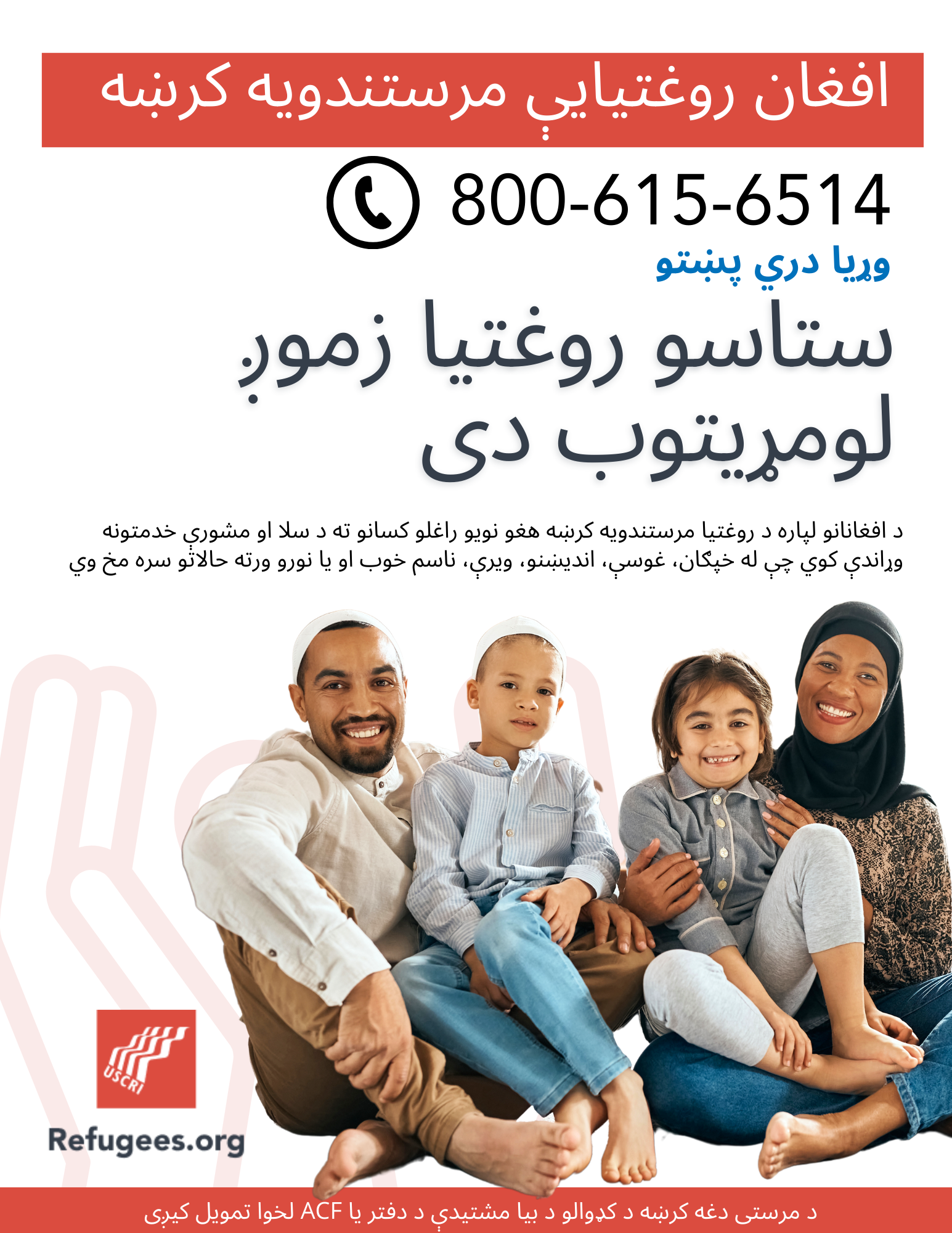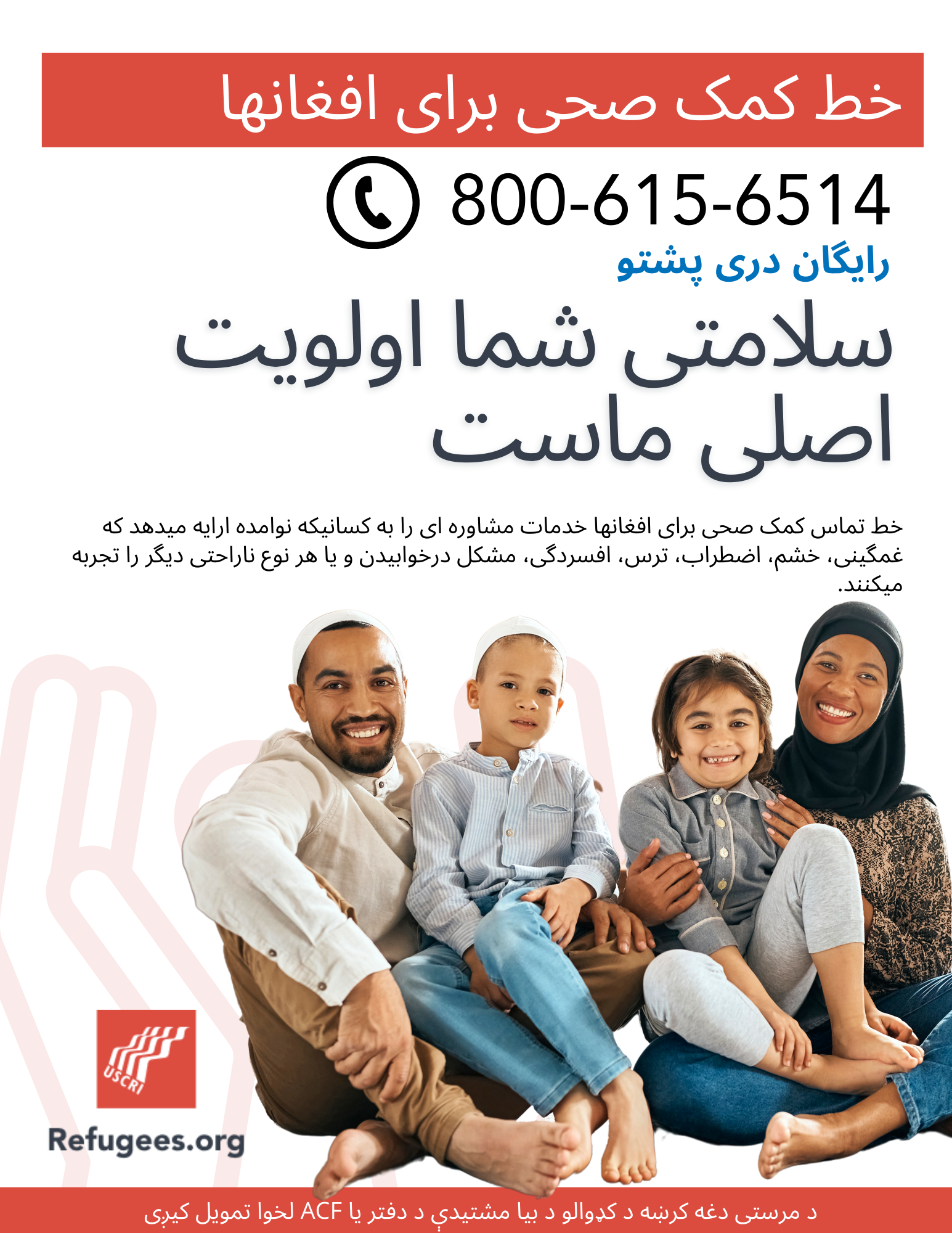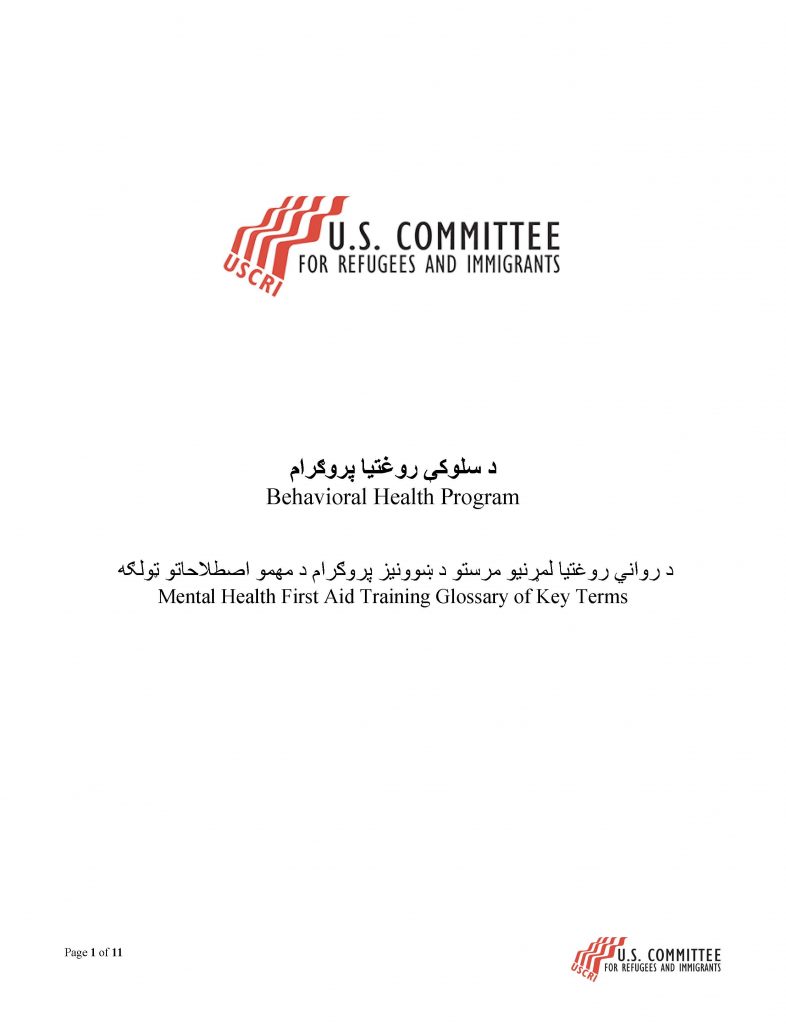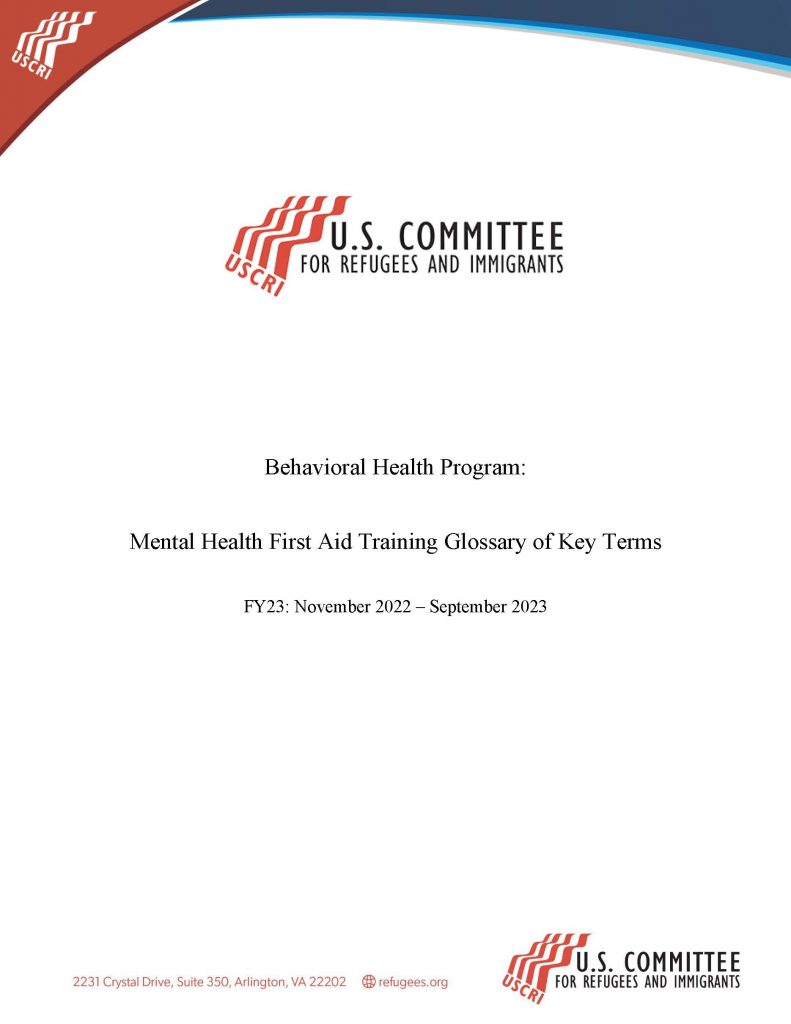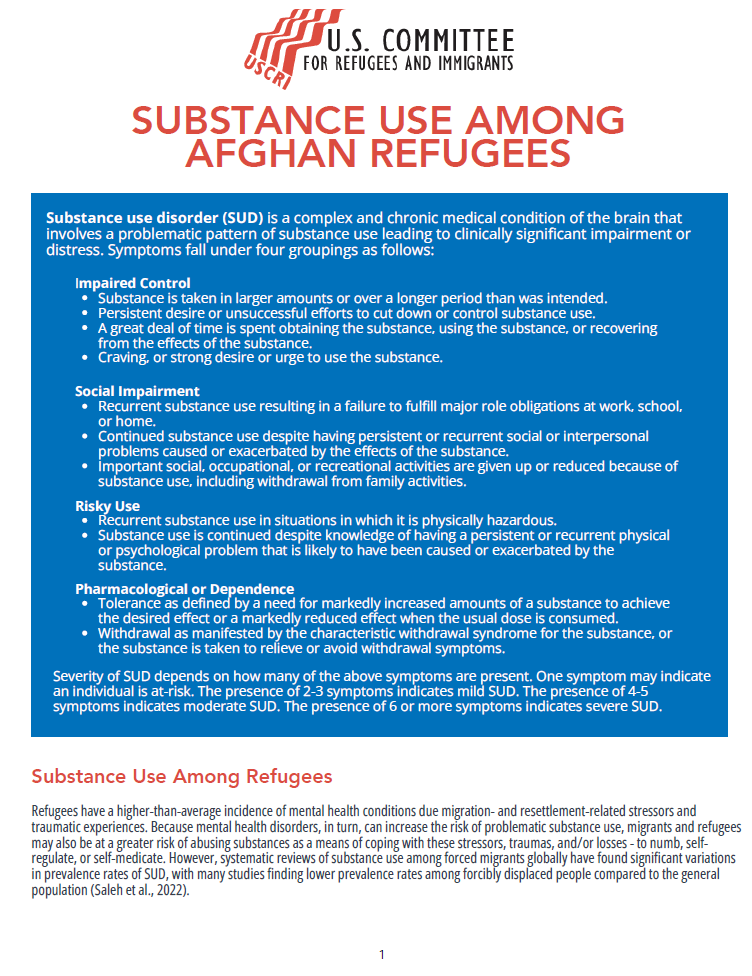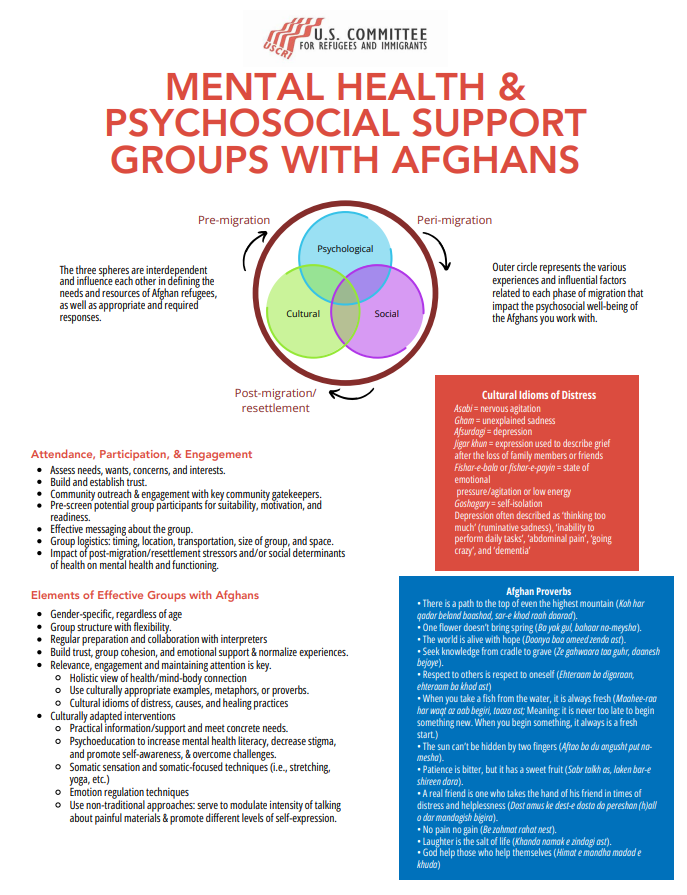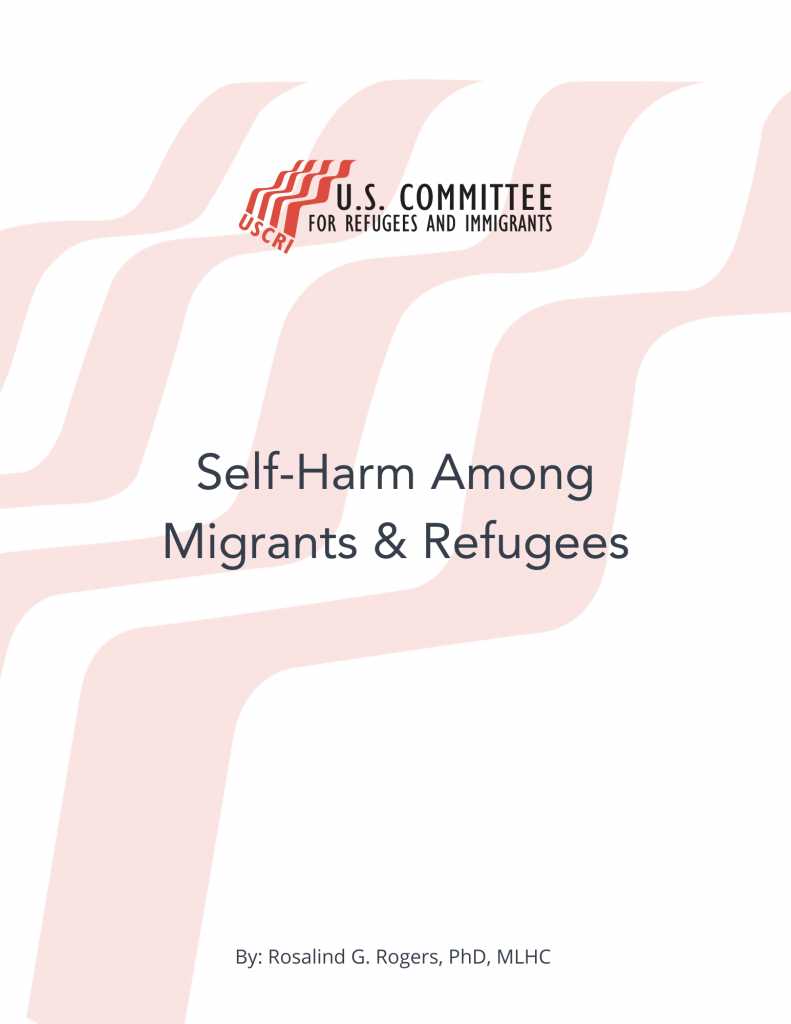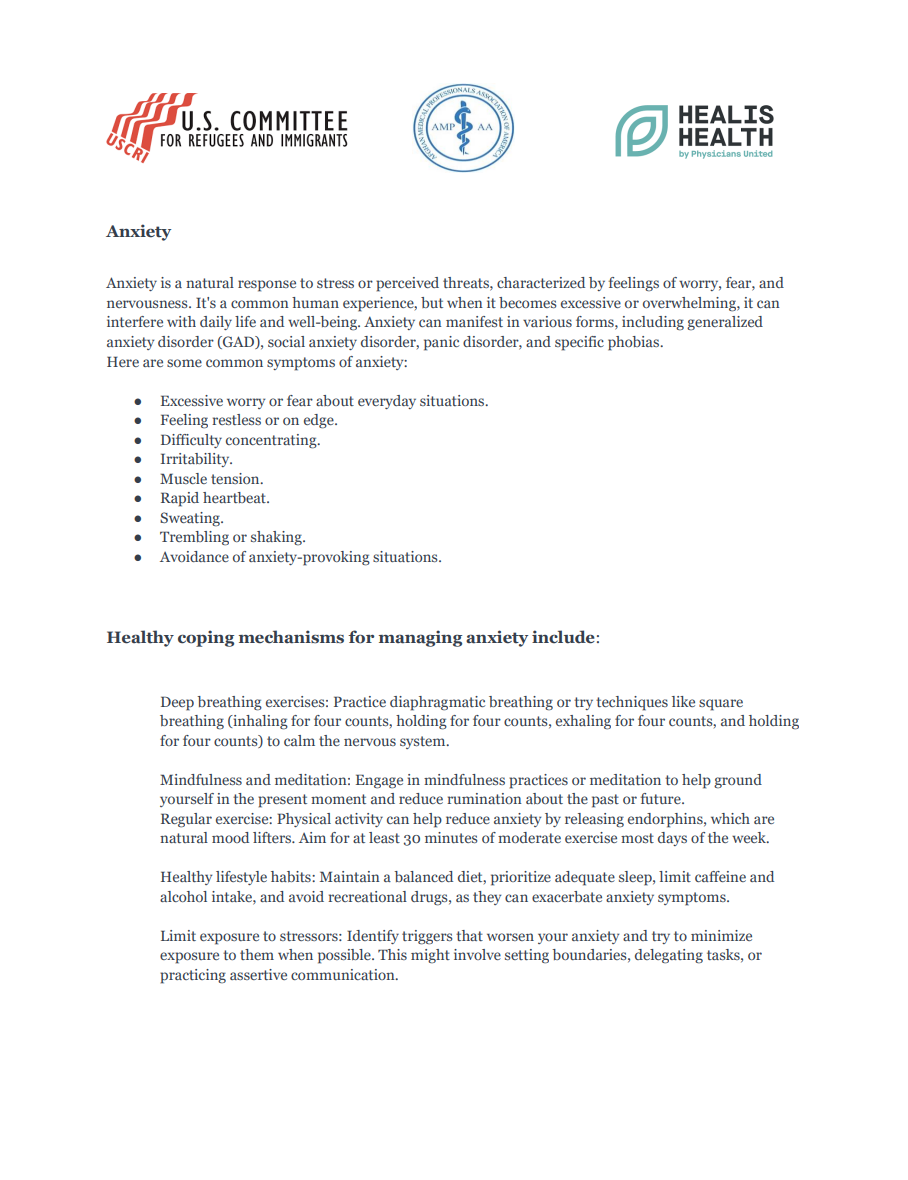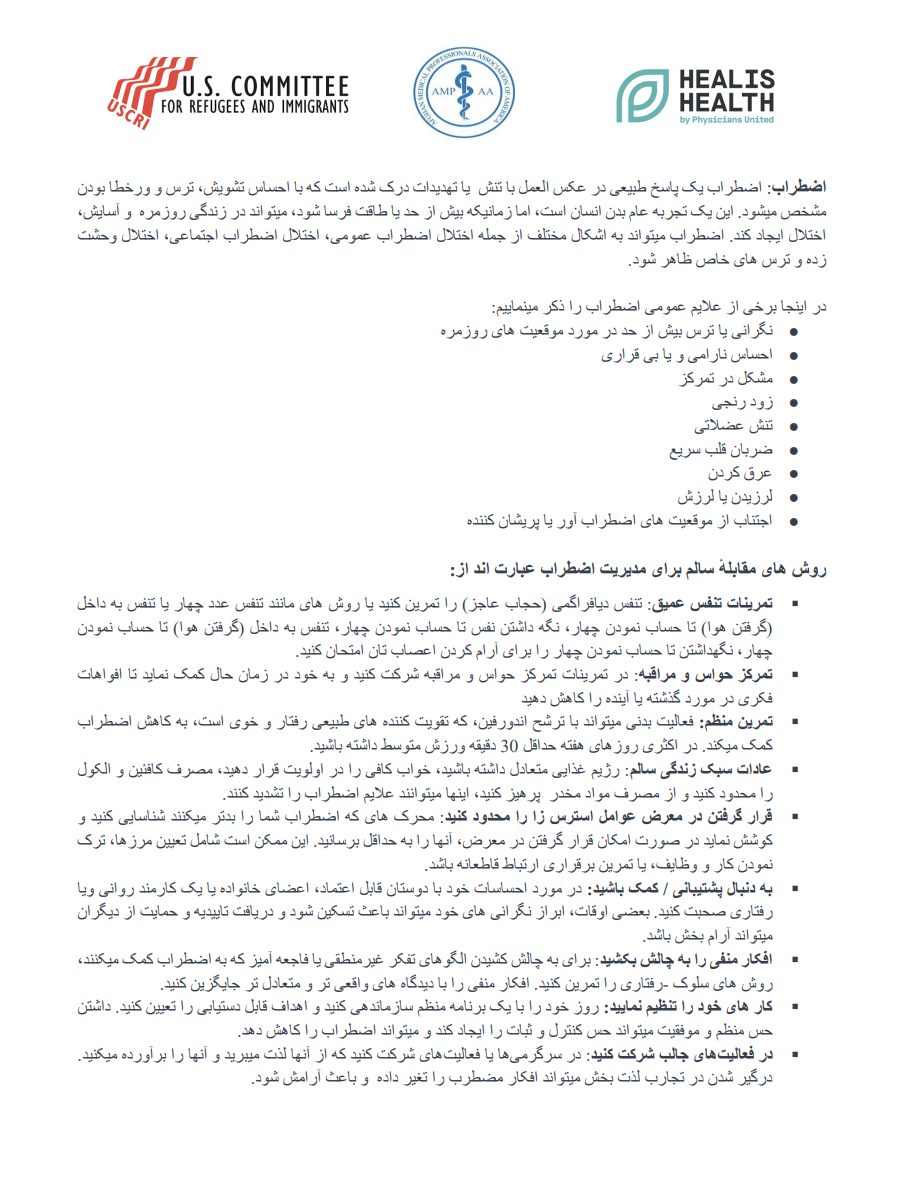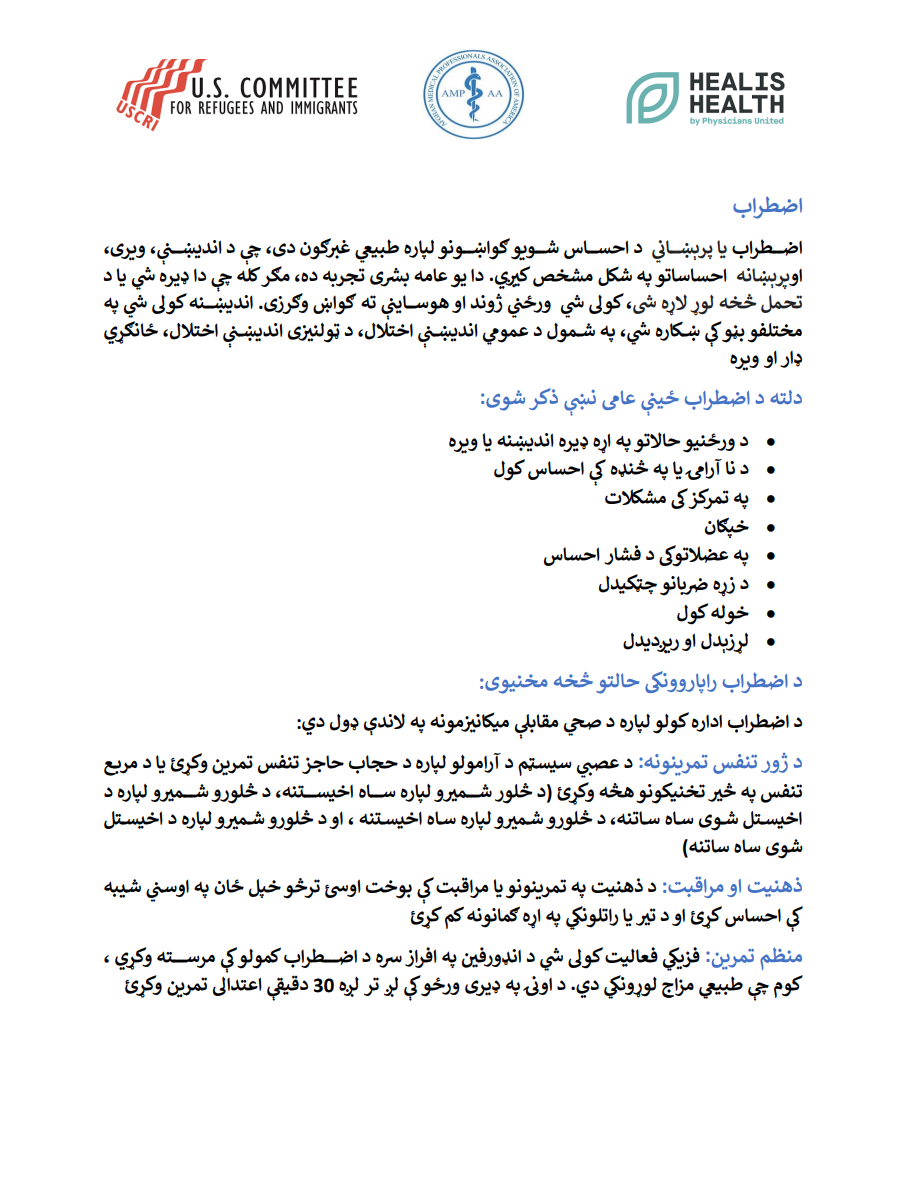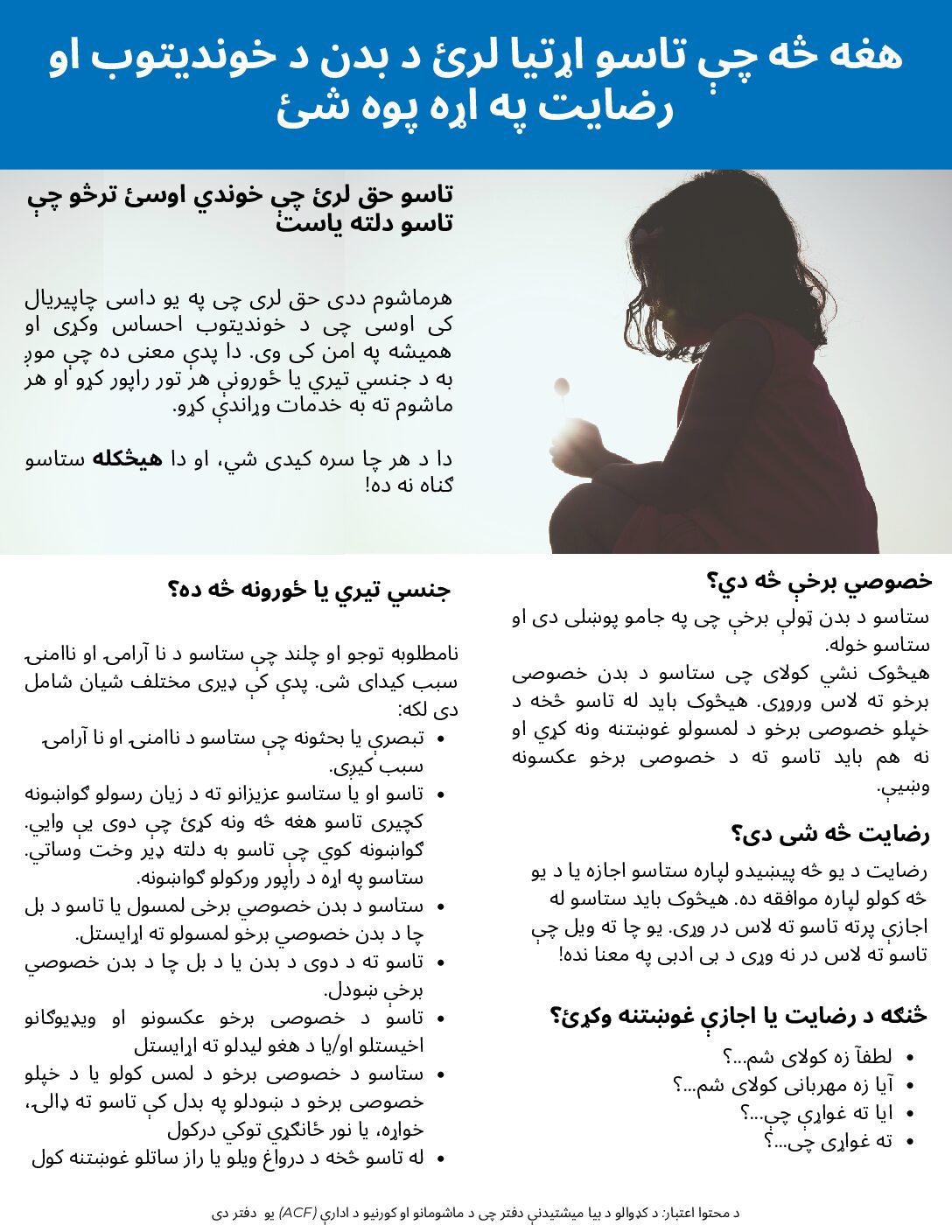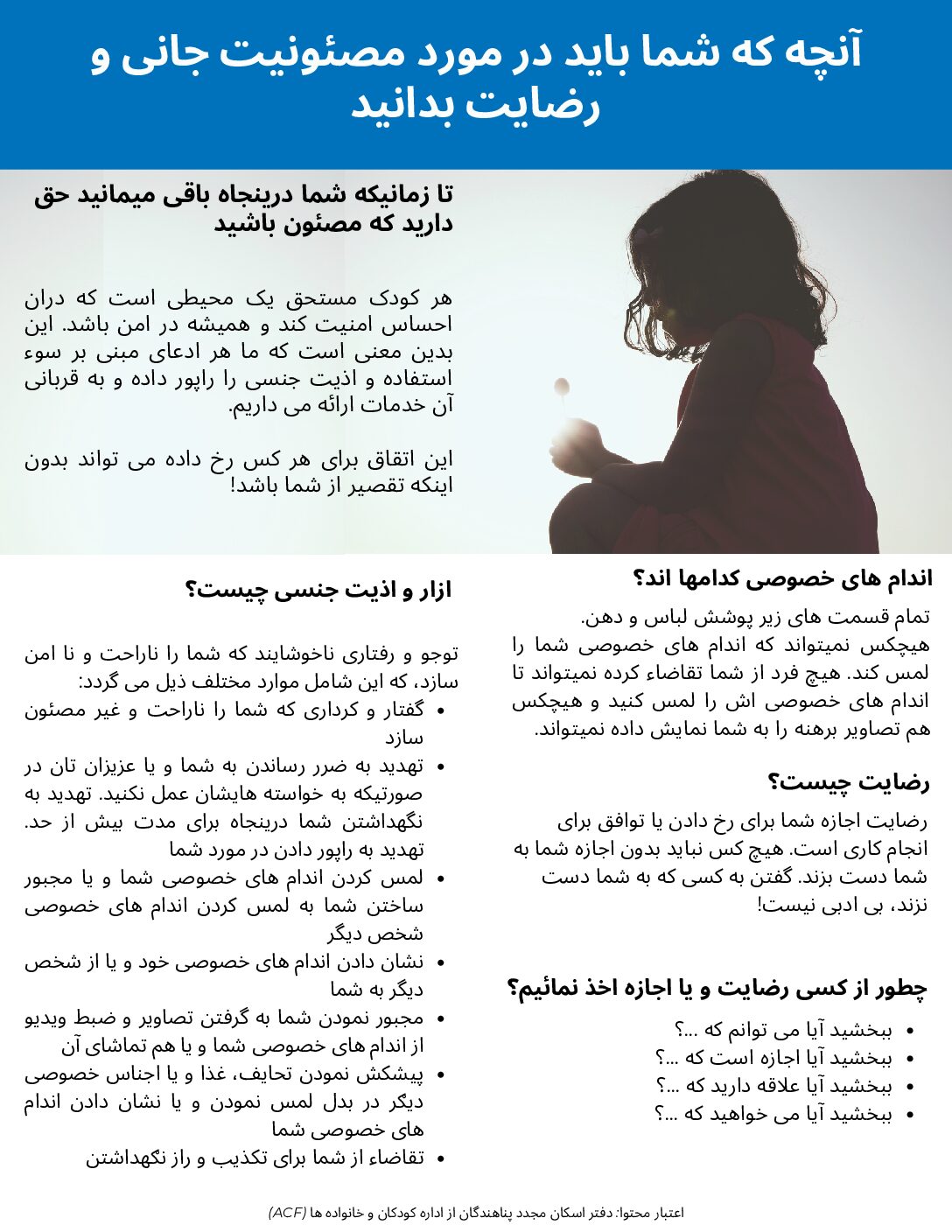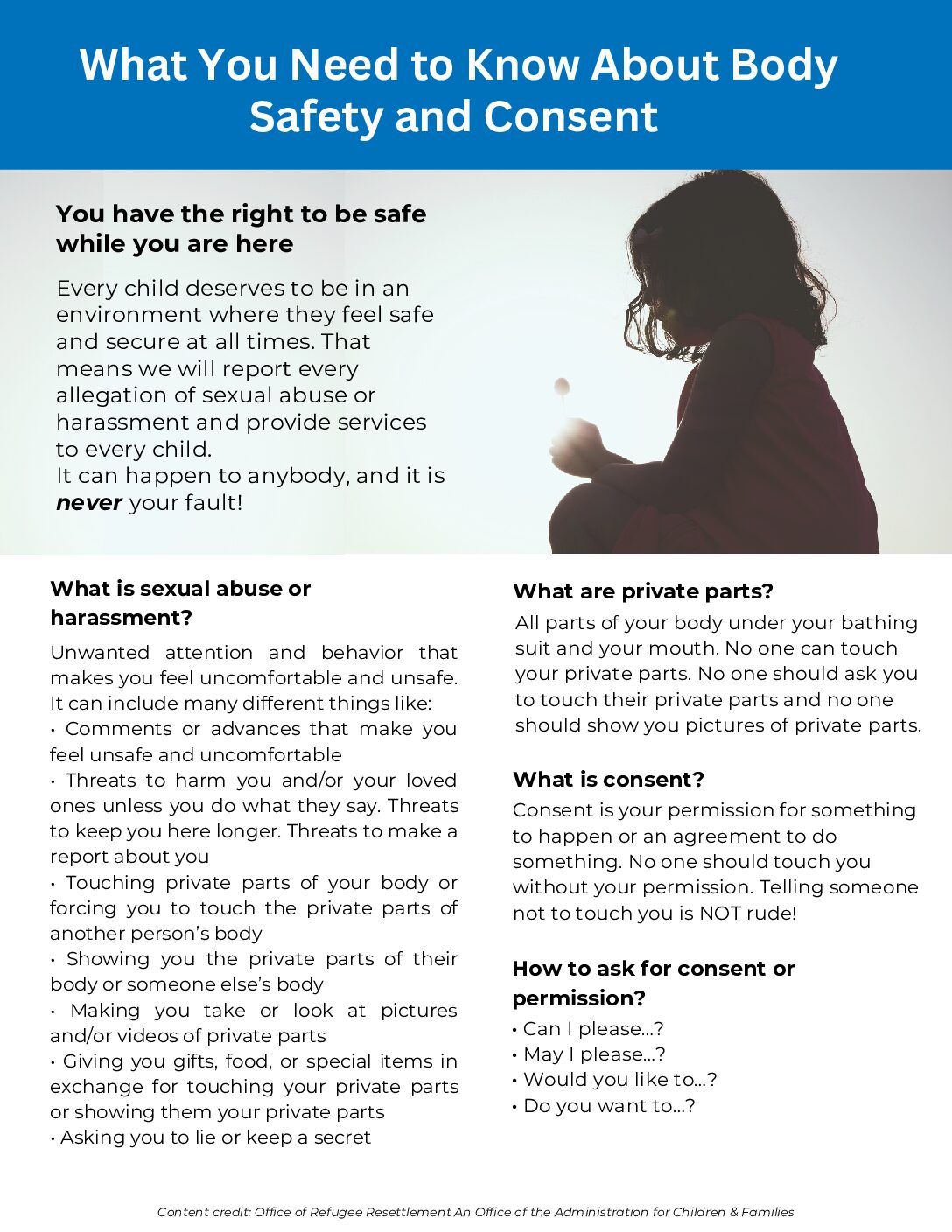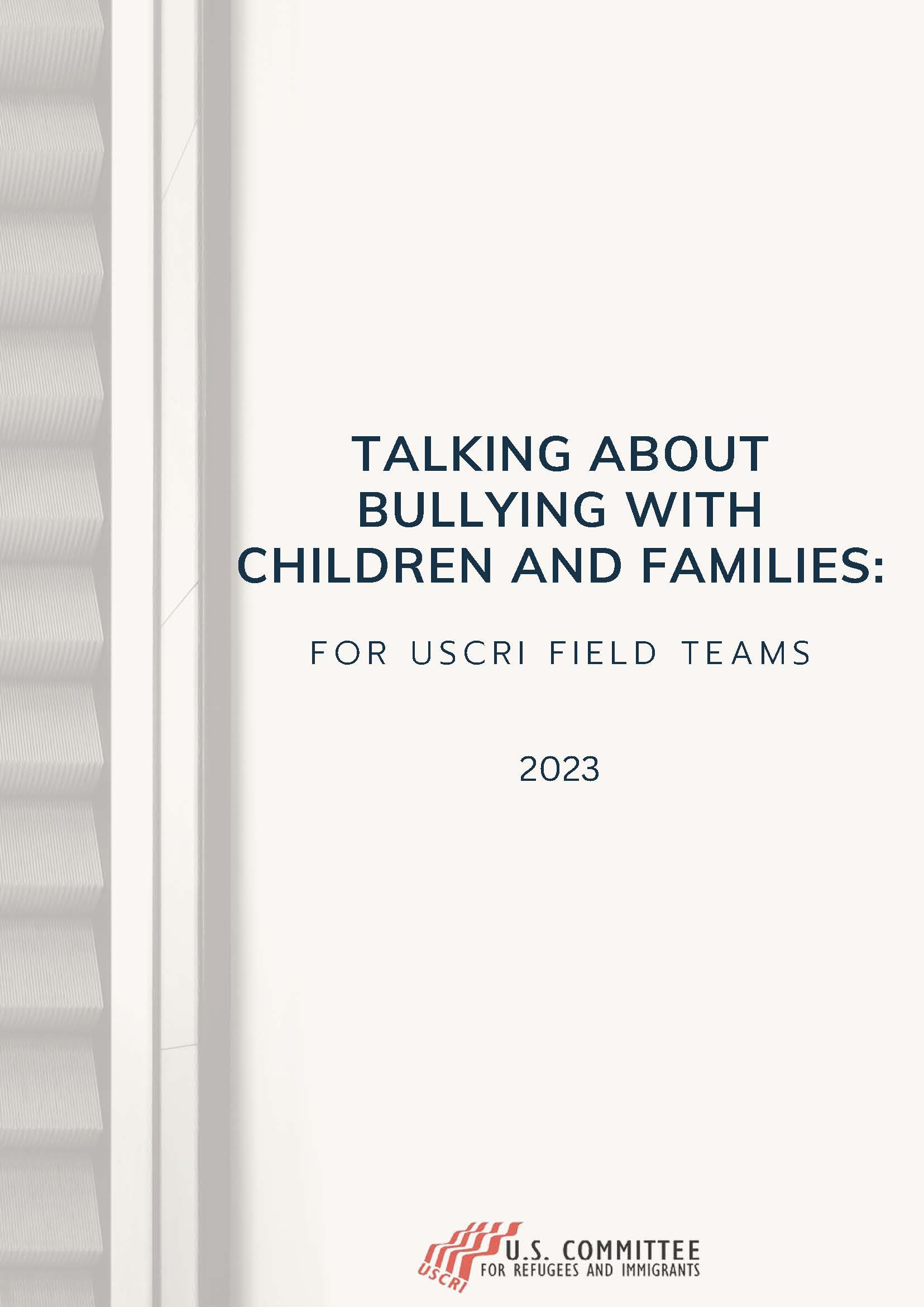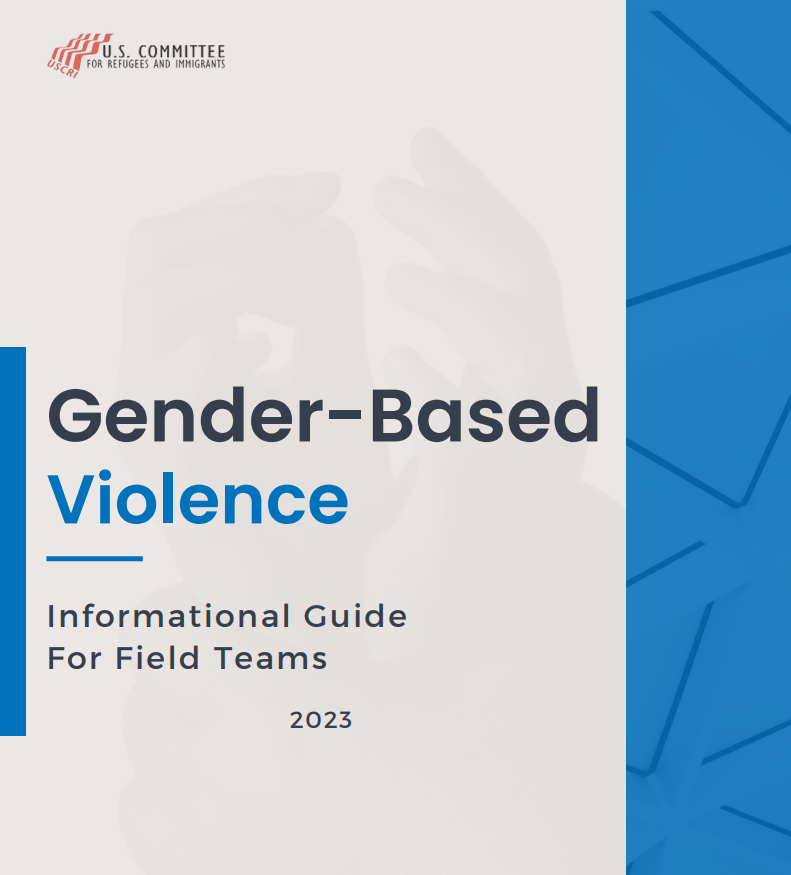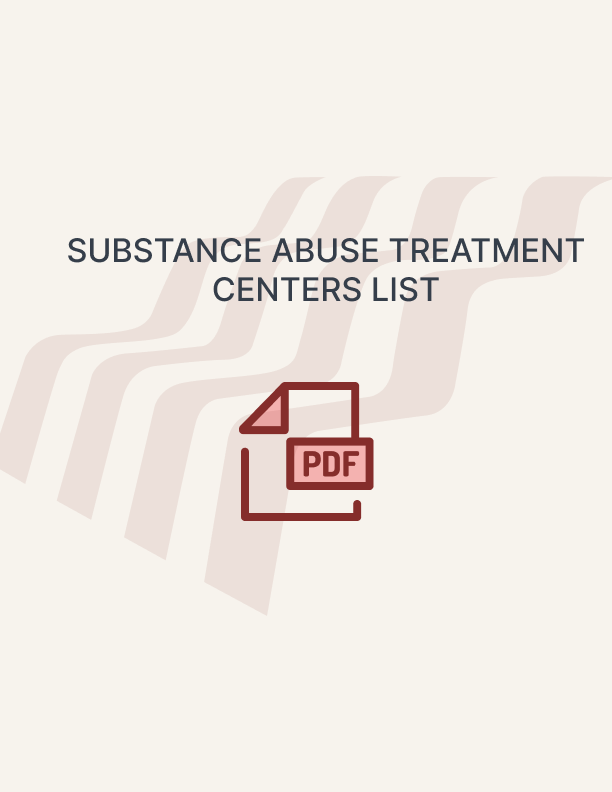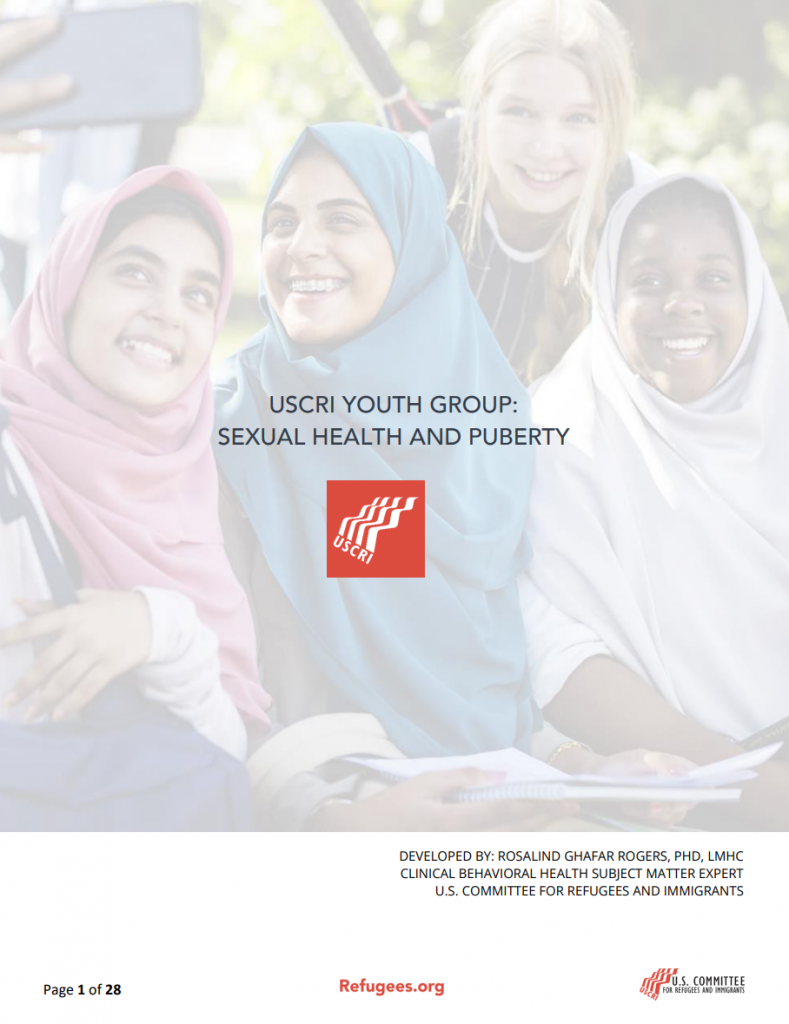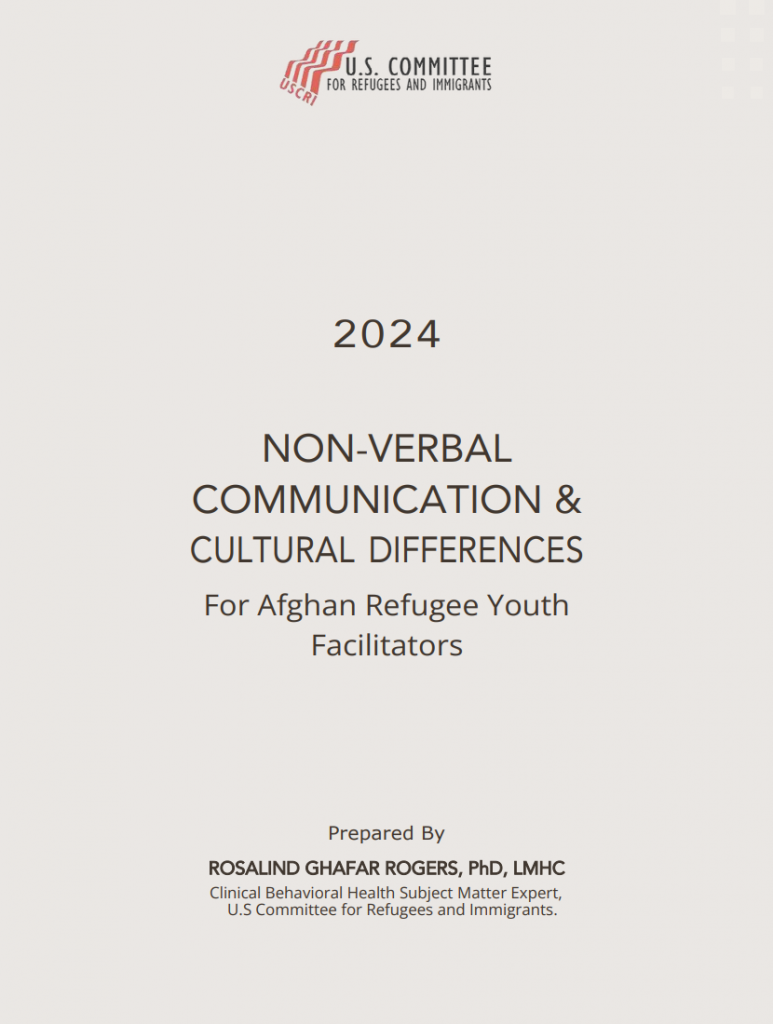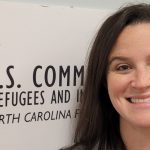Post-Resettlement Behavioral Health Support
Learn how USCRI’s Refugee Health Services program addresses settlement challenges for resettled Afghan residents nationwide through behavioral health support services.
Program Overview
In August 2021, thousands of Afghans fled their homeland and watched in horror as the Taliban seized control of the capital. The unprecedented emergency evacuation during the fall of Kabul by U.S. forces led to tens of thousands of traumatized Afghans being evacuated into the United States and eventually housed in Safe Havens for processing. The successful implementation of Operation Allies Welcome allowed for our Afghan allies in Safe Havens to be processed, receive the appropriate medical and behavioral health services, and subsequently resettle across the United States.
The behavioral health and psychosocial needs of resettled Afghans, particularly now as they begin to integrate into American culture—working, socially adjusting, and attending school alongside Americans, have not diminished. In fact, we anticipate an increase in need for behavioral health services as disorders related to stress, acculturation, trauma, loss, and grief begin to surface.
As a follow up to Operation Allies Welcome, with funding from the Office of Refugee Resettlement, USCRI’s Refugee Health Services has developed a dynamic and multi-tiered behavioral health support services program aimed to mitigate resettlement challenges by expanding access to culturally and linguistically tailored, trauma-informed behavioral health services for resettled Afghan arrivals across the nation. The program is led by qualified professionals from the U.S. Afghan diaspora; in partnership with The Afghan Medical Professionals Association of America (AMPAA).
Get Help
National Helpline
USCRI has set up a national crisis hotline to support newly resettled Afghans. Counseling is provided as needed, and referrals to appropriate services are provided immediately. Cases in need of emergency intervention will be flagged to the Crisis Response Team (CRT).
Crisis Response Teams (CRT)
USCRI’s crisis response team (CRT) is a multidisciplinary team equipped to provide immediate support to Afghan clients experiencing a behavioral health crisis. CRT will coordinate with individual state health systems to deliver direct clinical services, psychosocial support, and wellness initiatives for Afghans in need of immediate care and treatment.
To access the Patient Intake Form, click here.
Resources for Providers and Clients
Mental Health First Aid Training Glossary of Key Terms
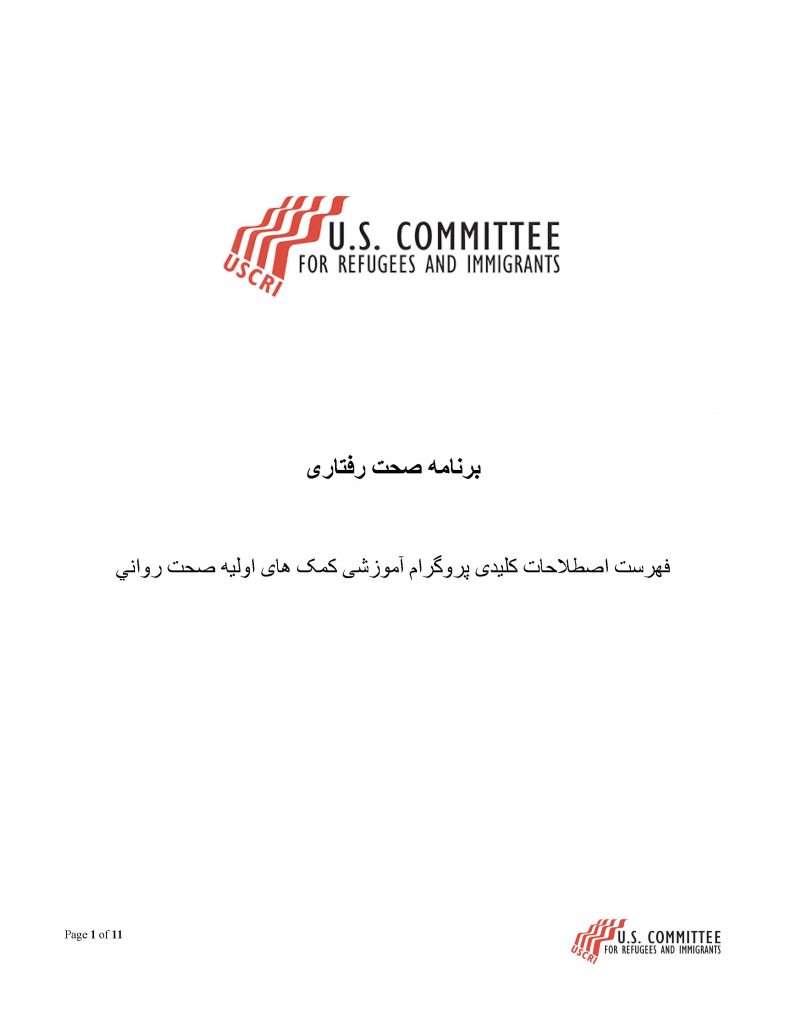
برنامھ صحت رفتاری
فھرست اصطلاحات کلیدی پروگرام آموزشی کمک ھای اولیھ صحت رواني
(Dari (دری,) Version)
Substance Use Among Afghan Refugees.
Mental Health & Psychosocial Support Groups with Afghans
Self-Harm Among Migrants & Refugees
Adjustment Disorder
What You Need to Know About Body Safety and Consent:
Afghan Mental Health and Employment
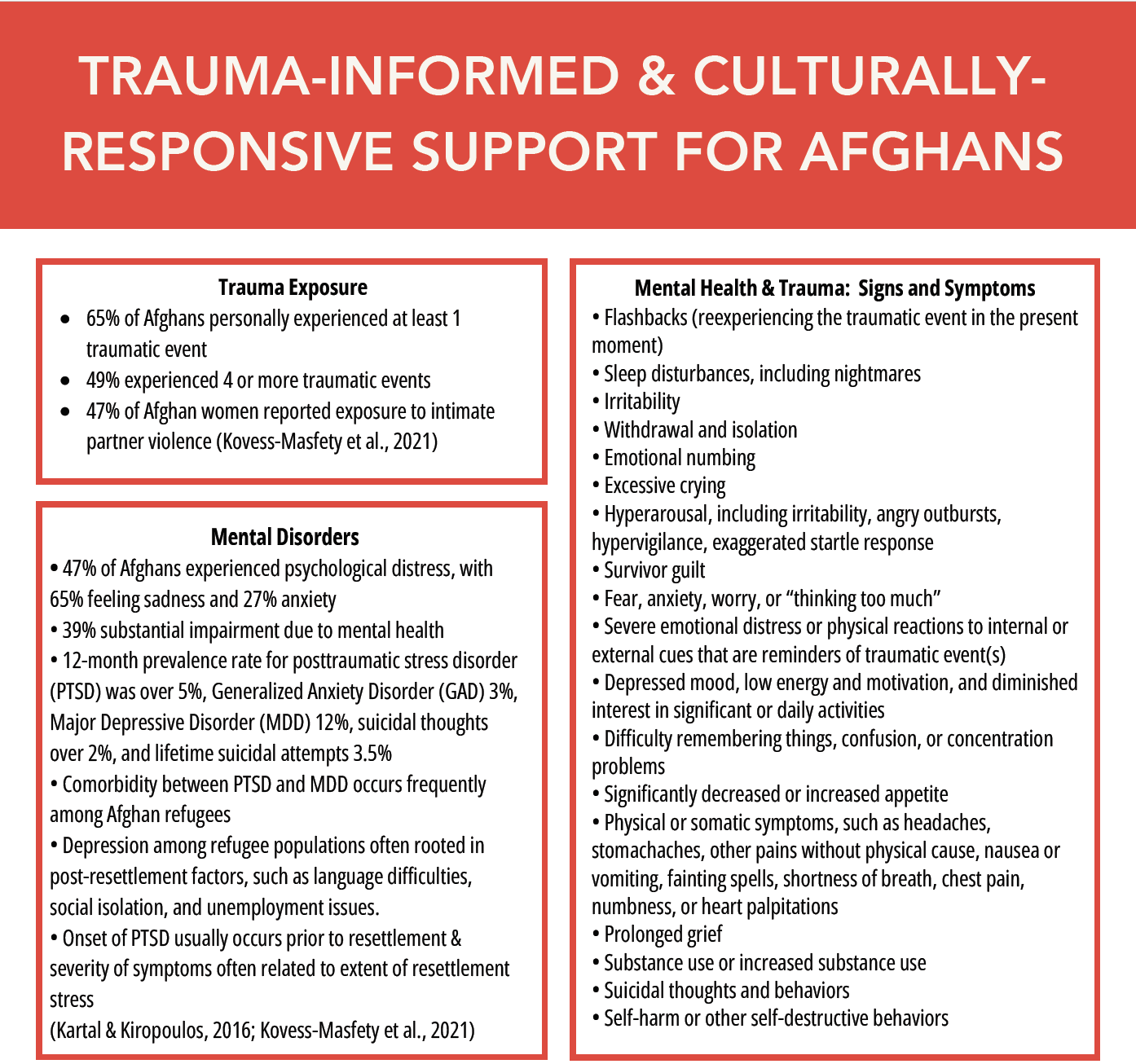
Afghan Mental Health and Employment: Trauma-Informed and Culturally-Responsive Support for Afghans
What to Expect When Taking Your Child to a Doctor's Visit
Mental Health & Wellness for Refugees
Substance Abuse Among Unaccompanied Minors
Force Displacement & Trauma
Mental Health and Psychosocial Support Groups with Afghans
Contact Us
Contact us at [email protected] or 800-615-6514 if you or someone you know is experiencing emotional distress.
In case of an emergency, please call 911.

